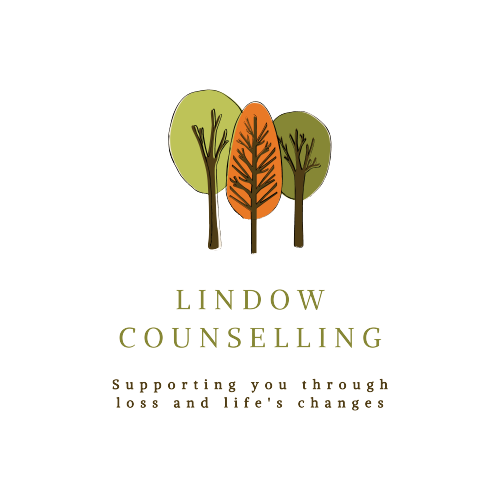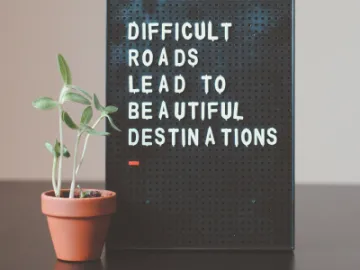Why being nice can damage your health
Why being nice can damage your health
Have you ever found yourself doing something for someone else that you really didn't want to do? You wanted to say no but something stopped you and you became frustrated with yourself – why did I do that again?
Well, here are some ideas for you to consider in deciding whether you're under the spell of the 'people pleasing condition'.
In childhood you're taught from a very young age to share, before you even understand the concept of what sharing is! You share at toddler groups, nursery and with your siblings at home.
Parents often don't want to cause a scene, not wanting their child to kick up a fuss publicly or appear selfish and sometimes conflict is resolved by encouraging you to give up your claim to something for the benefit of another child.
Naturally, you may feel upset or angry at this but can feel conditioned to calm down, be nice and show you care for others. This message, when balanced, can be healthy but if it's you who has often had to back down, it can become more destructive. As a child you can begin to lose a sense of what's important to you, feel guilty for your uncomfortable feelings and begin to feel invisible. You can feel like your needs aren't important, so much so, that it can feel uncomfortable for you to actually look at and recognise your needs.
A child doesn't have the emotional or psychological ability at such a young age to fully understand altruistic behaviours. Sometimes parents can be distracted by the resulting behaviours and not realise the value of balancing behaviour management with empathy and understanding in relation to the feelings that are underpinning the behaviour.
When a child is consoled and receives a child appropriate explanation it can be so helpful to help them to understand what has just happened. They can see they are still worthy and still appreciate their needs are important. A parent/carer who acknowledges feelings with a child, labelling them to the child can really help to validate those feelings, helping the child to understand all feelings are OK to feel.
Unfortunately, if the empathising stage doesn't happen, a child can be left with the message that the behaviour is unacceptable and that the feelings are also unacceptable. A child can learn from this that their view isn't important or that having those feelings is selfish. Such thought processes can lead to self esteem problems later in life.
If you can relate to any of these ideas, it may be that you might also see yourself in some of the following behaviours. Being compliant through childhood, when linked to suppressed needs and feelings can lead you to follow that same pattern into adulthood. It can create a fear of letting others down or attracting disapproval from those around you. This is when being 'nice' can begin to damage your health.
Five things to consider if you feel like you have to be 'nice' to the detriment of yourself
Does this strike a chord with you? Can you think of times when you went along with things for the benefit of others, their needs appearing to be more important than yours?
Here are 5 points to consider in determining whether you are experiencing the 'people pleaser condition' and you may need to consider help in leading a more fulfilling life:
1. When asked to do something, do you automatically say yes, without considering the impact on yourself?
You are desperate to do the right thing. You feel you need to complete tasks to the best of your ability. You want to impress your manager because they are in charge of you and you want to please them and want them to think highly of you.
You are really looking forward to a night out with friends, you deserve it as you've been working so hard. With no notice, your manager asks you to work late that night, meaning you'd have to cancel seeing your friends.
You feel sick, you're so sad and worried about letting your friends down but you cannot envisage saying no to your manager. You feel so guilty about your friends but cannot possibly say no to your manager and you immediately respond 'Yes, that's fine'.
Some questions to ask yourself:
Is this something asked of all members of staff or does it appear to be mainly you?
If it's the same for everyone, it could be a management issue and it may be that as a collective you can nominate someone to discuss whether the manager can give more notice of the extra work. You may discuss extra benefits for working extra hours. This is unlikely to be a role you'd relish but you may wish to participate.
If it appears to be you that's often asked, this must be impacting you greatly. Afraid to say no but having work impacting on your work/life balance. You're probably feeling frustrated or angry with yourself but don't know what you can do...
What will happen if you say no? You explain you have an important engagement and you're sorry but had you had more notice you would have happily said yes. You would be communicating I am also important, I have a life and I wish to be treated with respect.
This kind of assertiveness is providing a possible solution ie more notice is required. Also, it's inferring that the manager can also improve by organising themselves better and communicating intentions in a more timely fashion.
You may see that often those who say no seem to be left alone to their own devices. If they have a reason as to why they cannot do something, the manager often moves on to the person who provides least resistance – is that person you?
Change is possible.
2. Do you notice that in your personal life you constantly do things for others, whilst they are able to relax?
So how does this make you feel? Exhausted, annoyed, taken for granted? Unfortunately this can feel like the curse of always putting the needs of others first.
You can feel compelled to do things... You find yourself occupied with what those around you need, the urge to look after them whilst feeling there aren't enough hours in the day.
The paradox here is that the more you invest in others' needs, the less they seem to notice. Your process of going above and beyond what others might do is often simply seen as your norm, an expectation of you. The extra effort going unnoticed by those who you're most wanting to be influenced or touched by your efforts.
The frustrating thing is that sometimes, those who normally do less than you receive congratulations and praise when they try a little harder. Their extra effort can pale into insignificance in comparison to what you do, so what makes them receive the recognition when you fail to do so?
Perhaps your quiet tenacity, simply getting on with things without kicking up a fuss is a clue; but the problem is then evident when you direct your frustration about the situation at yourself. Labelling yourself as stupid or useless, or other such negative terms to deal with your hurt.
The cycle of working hard and having your effort ignored by others, continues...
So what can you do to change this?
The simple answer is for you to value yourself. Instead of placing yourself at the the bottom of your list, try to include yourself higher up – possibly with the aim of your needs being at the top of your list! Ouch, I suspect this is uncomfortable reading for you.
How can you be so selfish? What makes you so important?
I'd like to ask – what makes you so unimportant?
Where are you in this equation?
Do something you enjoy – a little pampering, going for a walk, watch a film, read a book, chat with friends... Whatever you need, instead of waiting to see if there is enough time to do it, try blocking out time to ensure you do it.
[
]
Schedule it in your diary – commit to this. Prioritise it the same way you would a health or work commitment. This is a thing that will re-energise you, enable you to do all the other things you feel you want to and need to.
Remember the metaphor of the oxygen mask on a plane, they always tell you to put on yours first before helping anyone else with theirs. You need to be safe and healthy in order to help those around you.
3. Do you get overlooked for promotion at work even though you constantly do more than is required?
How often do you see someone who works really hard and is a caring and helpful person get overlooked for promotion? As we progress in an organisation, one of the skills we need is that of managing people, the skill of prioritising, focusing and dealing with any conflict within the dept.
An effective manager needs to be robust and calm when dealing with different points of view. They need to have strong communication skills and be able to set clear boundaries and limits.
As someone who is desperate to please as many people as possible, it could be that you haven't demonstrated your ability to do this. Working over and above expectations can become a higher level of expectation and in a higher role, without the ability to properly delegate or say no to unrealistic demands, you personally could be harmed and so too could the people you manage.
Acting as an advocate for other employees, speaking out and setting realistic goals for yourself and staff are essential and if there's any uncertainty as to your capability in these areas you probably won't be considered for such a role.
If these themes sound familiar to you, what can you do to change the situation?
If you are able to value yourself, and demonstrate this to others, those around you will recognise they need to justify their demands of you. They too will need to value you. This is where being kind to yourself can replace the idea of being nice.
Kindness is different in that it enables you to value yourself. There is an element of respect.
You are not saying no to others, you are saying YES to you
- You deserve it
- It's healthy to say no to an unreasonable demand and explain why it's unreasonable and what would have been more reasonable
- If it feels unacceptable, it probably is
- If you never say yes to you, you'll become exhausted and have to say no to everyone else because you'll have no energy left for anyone else
"Kind people have good self esteem, they love themselves as much as they care about others and they expect to be treated respectfully.
Nice people crave approval from others, so that they're often manipulated or taken advantage of."
4. Do you blame yourself for your situation?
You may be a victim of self blaming? It's your fault, you're stupid... This is because you've lost your sense of self, who you are and who you can be. You've spent so long trying to be 'nice' to everyone that you've forgotten what you actually like.
You are wonderful. You have things you've enjoyed before and things you are good at that you enjoy doing. Those attributes and strengths haven't disappeared, they're still part of you, within you but you've temporarily lost sight of them.
You are not stupid, you've fallen into the trap of thinking you are unimportant because of many life experiences you've had, but here's the secret.
You are capable of change, you DO NOT have to stay this way...
You can begin to refocus on you, add small things into your life that will make you feel better and will help to build your emotional resilience.
5. Some tips to help you to take care of you...
You need a new mindset. When you plan things in your diary for you, call it a 'well being appointment'. View it as essential. You do not have to justify it to anyone else. It's like a service of a car, rest for an athlete, sleep for a baby... They are all some form of down time, which will enable rest and growth.
So now you can understand the importance of this, consider things you actually like. Things from your memory banks, what have you enjoyed doing in the past? You might want to try something totally new!
Here are some ideas:
- Read a magazine/book – at least half an hour
- Have a bubble bath and then use some lovely moisturising cream. Don't rush it
- Go for a walk with a friend and allow at least an hour to be outside in the fresh air
- Spend time playing with your pet – time to be, not to do
- Have a games night with family/friends – can still be done via Zoom
- Have a family film night or a great solo film viewing
- Cook a tasty meal, with all the trimmings even if it's just for you. Spoil yourself
- Restart an old activity or hobby from childhood
- Find a new activity you've always wanted to try
So give yourself permission to be kind to you...
When you're struggling, you need help, this is simply human. Taking care of yourself is essential in life and self-care is very different to being selfish. Self-care is looking after yourself and others whilst selfish is simply looking after yourself with no care for others.
Brene Brown has published so much work on the topic of vulnerability and living 'whole heartedly', promoting the idea of accepting our vulnerabilities, sharing them with those we love, learning from them and growing as we try new ways of being and relating.
In my experience of counselling families the one constant is that we are all changing and learning all through life – nothing is static.
Families change as new members are added, babies are born, children are growing, family members move away or may leave the family entirely and there is also the painful inevitability of loss through death.
In addition to changes within the family unit your identity as an individual and how you want to be viewed changes as you grow.
As the family unit changes, so you can also change within it
Change is often resisted by other family members. You need to persist in the goals you set for yourself, tell yourself how important the change is to your well being. Vision how you want to be treated by others in your life. What you want them to say to you, how you want them to act towards you and what you'd like them to feel about you. Draw or write what you've visioned and keep it somewhere handy to refer to. Video yourself, speaking out loud about how you'd like others to treat you.
You will have to practice being the 'new you', the 'you' that values yourself. Sometimes you'll slip back into old ways, that's fine – acknowledge it and accept it will happen and then return to your new way of being.
Small steps provide big results
Tell people you are changing, explain you need to look after yourself. Rejoice in it, don't be embarrassed by the change, proudly tell people:
"IT'S OK TO SAY YES TO ME. I AM WORTH THIS. I CANNOT DO ANYTHING FOR ANYONE ELSE IF I'M NOT ALLOWING MYSELF TO DO THINGS THAT ARE HEALTHY FOR ME."
[
]
When you assert your needs, people around you will stop and notice. If you persist with the change, people in relationship with you will have to adapt their behaviour towards you – your change will cause a change in how they treat you.
Enjoy learning to value yourself
As a reformed 'people pleaser' who now sees the benefits of saying no and asserting myself, I can help you. If any of the points here ring true for you and you're interested in leading a more fulfilling life, follow my blog as www.lindowcounselling.co.uk or my Facebook page Helena Hodgson MBACP Lindow Counselling or email me at helena@lindowcounselling.co.uk to find out about my counselling service and how I can help you.



